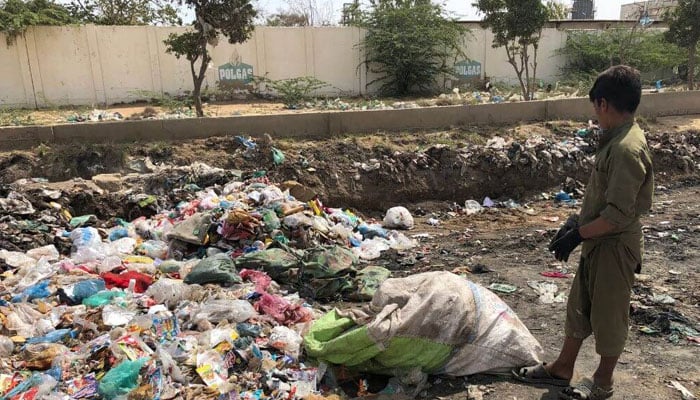Over the past few years, Karachi has seen an increase in the intensity and unpredictability of monsoon rain, which regularly results in flooding. The increasing usage of plastic and the resulting accumulation of plastic trash in the city’s drainage system have been major contributing factors. Even with this information, the people of Karachi continue to go for single-use bags.
Of course, there is a connection between climate change and the increasing rainfall; clogging the drains with plastic does not help. The chief meteorologist of the Pakistan Meteorological Department, Dr. Sardar Sarfaraz, states that “poor drainage systems and unplanned urbanization exacerbate the flooding.” Not everyone is persuaded.
The 47-year-old scuba diver Mansoor Ahmed Khan feels it is unfair to attribute Karachi’s waterlogging to plastics. He has led teams to clear the seabed.
He notes, “It’s the city’s ineffective waste collection and management system.”
The use of plastic has a direct impact on climate change. According to scientists, it is not only an eyesore that contributes to pollution and biodiversity loss, but it is also a major factor in the climate crisis. The usage of plastic is endangering the rise in world temperatures because over 93% of plastic comes from fossil fuels that are produced through carbon-intensive extraction, refining, and manufacturing processes, according to Sahab Alam Khan, senior officer of WWF-Pakistan’s circularity and sustainability section.
Furthermore, “plastics, like any other material, cause emissions throughout their life cycle and the value chain,” says Shiza Aslam, head of research at the Circular Plastic Institute at the Karachi School of Business and Leadership. Its fuel base, origin, and quantity present a hurdle.







